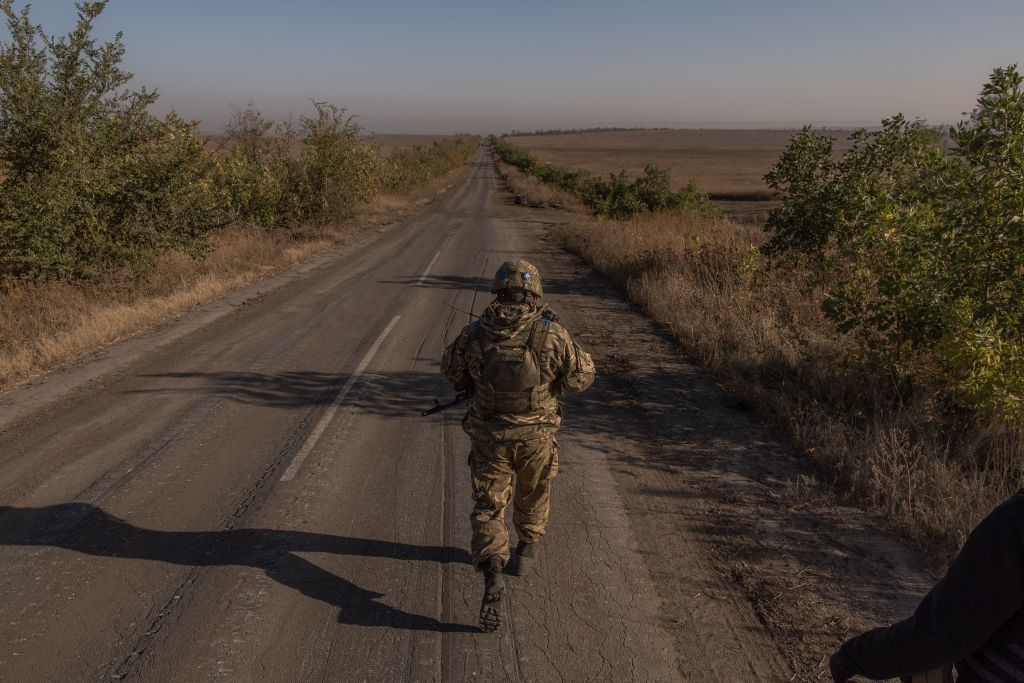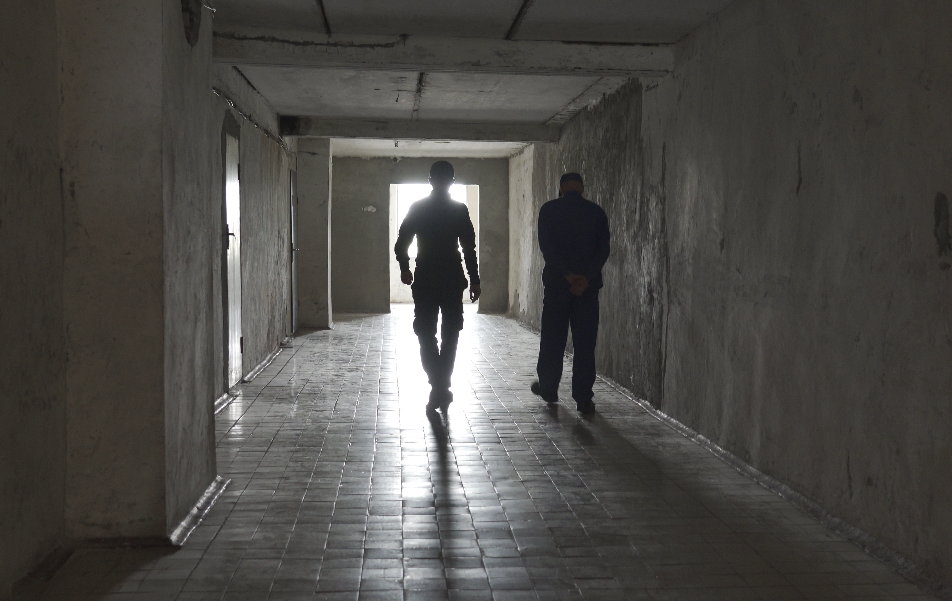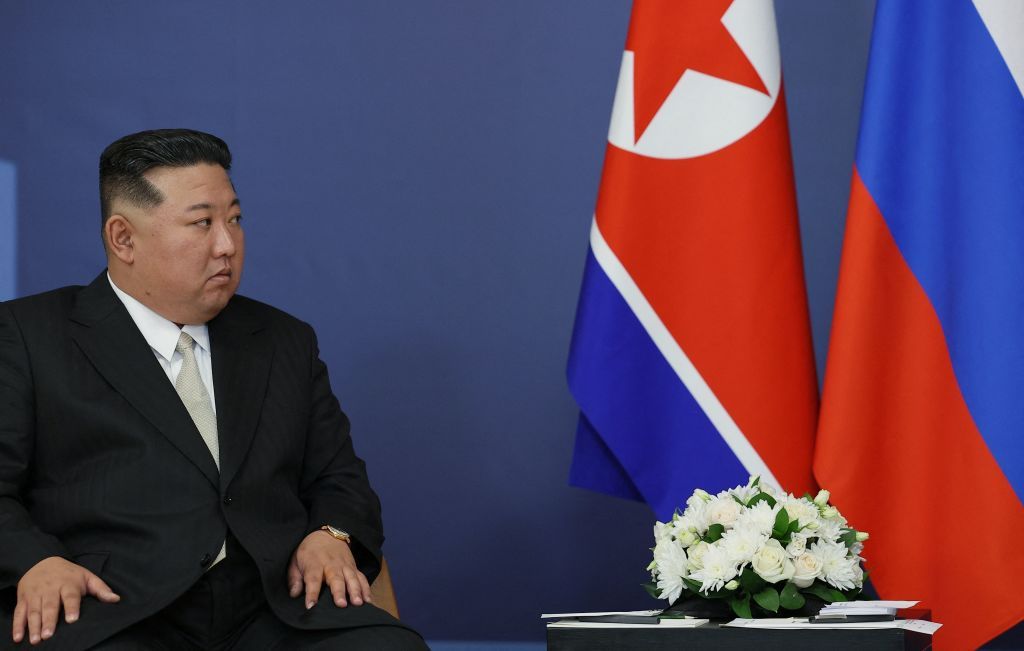Ukraine war latest: Russia suffers heavy losses near Vuhledar; US sanctions 200 targets involved in Russian war effort

Key developments on Nov. 2:
- Zelensky: Russia suffers heavy losses near Vuhledar
- Ukraine destroyed at least 4 Russian surface-to-air missile launchers in one week, UK Defense Ministry reports
- U.S. sanctions 200 entities and individuals for participating in the Russian war effort
- North Korea likely provided Russia with short-range ballistic missiles, media reports
- Ukraine announces evacuation of 275 children and their families from Kharkiv Oblast due to "difficult security situation"
Ukrainian forces repelled Russia's attempted advance towards Vuhledar in Donetsk Oblast, President Volodymyr Zelensky said on Nov. 2.
Russian troops suffered heavy losses as a result, including "dozens of vehicles and many killed and wounded," according to Zelensky.
"There was an attempt by the enemy to advance in the Vuhledar direction, but our soldiers stopped it, inflicting heavy losses on the enemy — dozens of vehicles, many killed and wounded," Zelensky wrote on Telegram.
A Ukrainian-held front-line town of Vuhledar — located around 50 kilometers southwest of occupied Donetsk — was the site of a major Russian defeat in early 2023 as attacking forces reportedly lost thousands of soldiers and over 100 armored vehicles.
In the same report, Zelensky said that Ukrainian forces also continue their offensive operations in the south and defensive operations near another Donetsk Oblast's front-line town, Avdiivka.
Russia intensified its attacks against and around Avdiivka in early October in an attempt to encircle the town. This resulted in heavy Russian losses in both manpower and equipment.
According to the U.S.-based think tank Institute for the Study of War (ISW), the situation around Avdiivka shows the Russian military command's inability to learn from past mistakes.
Also, in its Nov. 2 update, the U.K. Defense Ministry said that over the course of last week, Ukrainian strikes destroyed at least four Russian surface-to-air missile (SAM) launchers located in occupied territories.
The destroyed equipment includes three S-400 Triumph (known by NATO as SA-21) launchers, which reportedly cost $500 million each, in Luhansk Oblast, as well as potentially another unknown air defense SAM system in Crimea.
According to the U.K. Defense Ministry, Russia's high-tech, expensive SAM systems have suffered significant losses due to Ukraine's introduction of modern precision strike weapons onto the battlefield.
Ukraine has extensively employed High Mobility Artillery Rocket Systems (HIMARS) on the battlefield and recently began using the long-range Army Tactical Missiles Systems (ATACMS) after they were delivered by the U.S. in mid-October.
In addition, Ukraine has received other lang-range precision missiles from its allies, including the Storm Shadow from the U.K. and their equivalent, SCALP-EG, from France.
The missiles have been used to strike deep behind Russian lines, targeting ammunition depots, command posts, or military equipment storage facilities.
US sanctions 200 entities and individuals for participating in Russian war effort
Over 200 foreign and Russian individuals and entities are being sanctioned by the U.S. for their role in supporting Russia's military and economy amid the ongoing invasion of Ukraine, the U.S. State Department announced in a press release on Nov. 2.
The State Department has targeted companies involved in the Russian defense, electronics, energy, and mining sectors, as well as 90 entities and individuals "engaged in sanctions evasion and those complicit in furthering Russia's ability to wage its war against Ukraine."
According to the press release, the sanctioned companies include the operator of the LNG 2 Project — a flagship liquefied natural gas project in Russia's Arctic — and a Russian mining company directing the development of the largest titanium ore deposit in the world.
In a separate statement on Nov. 2, the Treasury Department said that it had added 130 new targets to its sanctions list due to their role in helping Russia obtain military technology and equipment.
Many of the targets are third-country individuals and entities that Russia is dependent on for supplying its military in Ukraine, with companies based in Turkey, China, United Arab Emirates on the list.
They help Russia bypass sanctions by delivering dual-use technologies, including drone engines, semiconductors, and electronic components that can be used in weapons.
Latvian, Irish, and Cypriot nationals are among those sanctioned for their involvement in those companies, alongside Russian nationals.
"We will not hesitate in holding them accountable," Treasury Secretary Janet L. Yellen said.
"Today's actions demonstrate our further resolve in continuing to disrupt every link of the Russian military supply chain, and target outside actors who would seek to support Russia's war effort," she said.
North Korea reportedly provided Russia with short-range ballistic missiles
A senior South Korean military official told the Yonhap News Agency that North Korea "might have" provided Russia with short-range ballistic missiles, together with artillery shells and other weaponry.
According to the media, Seoul estimates that Pyongyang shipped around 2,000 containers of weapons and munitions to Vladivostok in Russia's Far East.
It marks a notable increase from the 1,000 containers reported by the White House earlier on Oct. 13.
Yonhap wrote that this volume is capable of carrying over 200,000 122 mm artillery shells or over 1 million 152 mm shells, which are used by both countries.
North Korea and Russia have been growing closer in recent months as the Kremlin seeks to boost its arms capacities amid its ongoing invasion of Ukraine.
South Korean lawmaker Yoo Sang-bum said on Nov. 1 that according to the country's intelligence, North Korea has likely sent over a million artillery shells to boost Russia's war against Ukraine.
Aside from artillery munitions and possibly short-range ballistic missiles, Pyongyang likely provided Moscow also with T-series tank ammunition, anti-tank guided missiles, rocket launchers, rifles, and machine guns, the South Korean military said.
Ukraine orders evacuation of 275 children and their families from Kharkiv Oblast due to 'difficult security situation'
Ukrainian authorities have ordered a mandatory evacuation of 275 children and their families from 66 settlements of Kharkiv Oblast due to a "difficult security situation," the Reintegration Ministry said on Nov. 2.
The evacuation is planned to be carried out within 45 days.
The children, as well as their parents or legal guardians, will be provided with shelter, humanitarian aid, and other necessary support, the ministry said.
According to the ministry, this will concern settlements in the Kindrashivka, Kupiansk, Kurylivka, Petropavlivka, Dvorichna, and Vilkhuvatka communities of the Kupiansk district.
Ukrainian authorities began evacuating children from the Kupiansk district in Kharkiv Oblast in August as Russian forces intensified their attacks in the area.
Russia has been concentrating a large force in the Lyman-Kupiansk direction since the summer and recently launched major attacks along the entire eastern front.
















